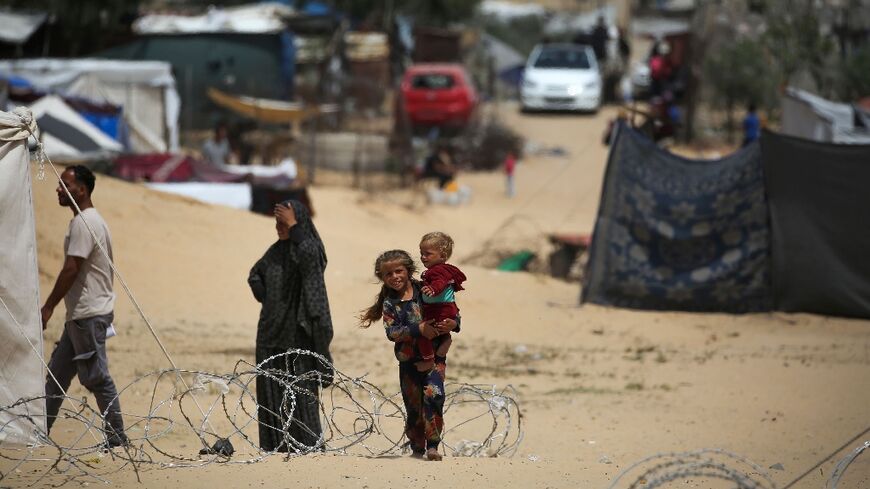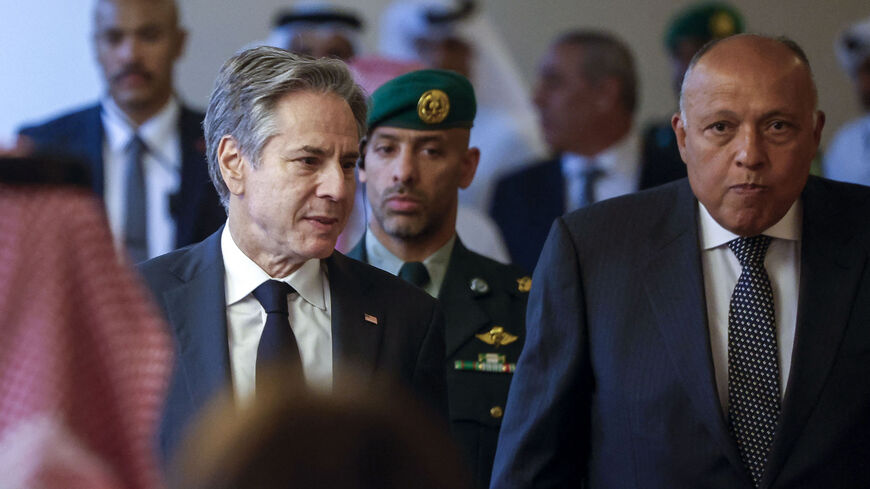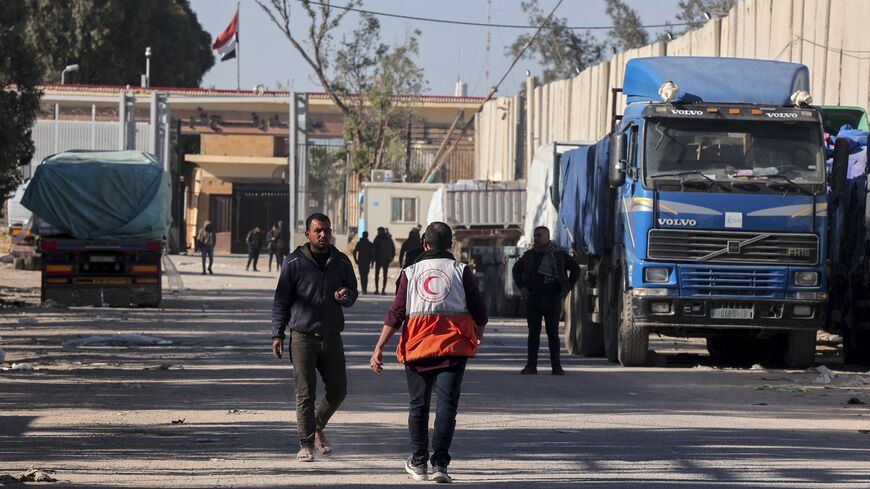Pressure builds for Gaza cease-fire as Israel readies to invade Rafah
As US Secretary of State Antony Blinken pushed for a cease-fire, Israeli Prime Minister Benjamin Netanyahu vowed to launch a Rafah incursion "with or without a deal.”

WASHINGTON — US Secretary of State Antony Blinken called on Hamas to "accept the proposal on the table" while in Jordan Tuesday, the second stop in a Middle East tour focused on securing an elusive cease-fire before Israel makes good on its threat to invade Gaza’s southern city of Rafah.
The secretary’s meetings in Amman with Jordanian King Abdullah II and Foreign Minister Ayman Safadi came as Hamas weighed an Israeli cease-fire proposal that Blinken described while in Saudi Arabia Monday as “extraordinarily generous.”
Along with negotiators Egypt and Qatar, the United States has struggled for months to formulate a proposal that hard-liners on both sides could accept. A senior Biden administration official last week blamed the current stalemate on repeated refusals from Yahya Sinwar, the Hamas leader who is believed to be hiding in a tunnel underneath the enclave.
The first phase of the tentative deal had envisioned Hamas releasing roughly 40 female, elderly and wounded hostages. The New York Times reports Israel is now willing to settle for 33 hostages, likely because some of the 40 in that category died while in Hamas captivity.
British Foreign Secretary David Cameron specified Monday that the latest offer calls for a 40-day pause in the fighting and the release of thousands of jailed Palestinians in return for Hamas freeing some Israeli hostages.
“I hope Hamas do take this deal and frankly, all the pressure in the world and all the eyes in the world should be on them today saying, ‘take that deal,'” Cameron said at a World Economic Forum event in Riyadh.
Cameron’s Egyptian counterpart, Sameh Shoukry, said Monday he was “hopeful” about the latest cease-fire proposal. Al-Qahera News, a site linked to Egypt's intelligence services, reported Tuesday that Hamas was preparing to "return with a written response” to the Israeli proposal.
According to Axios, Israel has budged on another Hamas demand: allowing displaced Palestinians to return their homes in northern Gaza. Israel has resisted declaring a permanent end to the war but is open to a "sustainable calm" after the initial group of hostages is freed, the outlet reported.
Blinken’s three-country trip to the region is his seventh since Hamas’ surprise attack on Israel on Oct. 7, during which the militants killed 1,200 people and took another 250 hostage, according to Israeli authorities. Israel’s counteroffensive in Gaza has killed more than 34,500 people and displaced more than half the population, according to the Health Ministry in the militant-run territory.
In separate phone calls Monday, President Joe Biden urged the leaders of Egypt and Qatar to "exert all efforts" toward reaching a deal to free the hostages and pause the fighting, the White House said. The president also spoke with Israeli Prime Minister Benjamin Netanyahu on Sunday to discuss a possible deal and reiterate his concerns about an Israeli offensive in Rafah, where more than half of Gaza’s population is sheltering from the war.
Netanyahu is under pressure from his right-wing governing coalition to not abandon plans for a ground offensive in Rafah, where Israel says Hamas’ leadership and four remaining battalions are entrenched. On Tuesday, the Israeli premier insisted a temporary cease-fire would not deter Israel from eventually invading the southern Gaza city.
“We will enter Rafah and we will eliminate the Hamas battalions there — with or without a deal — in order to achieve total victory,” Netanyahu said.
Blinken will use meetings in Jordan followed by Israel to push for increased humanitarian assistance to Gaza, parts of which risk imminent famine after seven months of war. Blinken met Tuesday in Amman with the UN’s envoy for Gaza humanitarian operations, Sigrid Kaag, to discuss the need for “an accelerated and sustained” increase in aid, according to the State Department.
Following the Israeli airstrike that killed seven aid workers from World Central Kitchen, Israel pledged to open additional border crossings and expand the capacity of its existing aid access points. Israel is also working with the US military to build a temporary pier off Gaza’s coast for humanitarian aid to arrive by sea. Blinken on Monday pointed to “measurable progress” in aid distribution since the World Central Kitchen strike, but said Israel could be doing far more.







